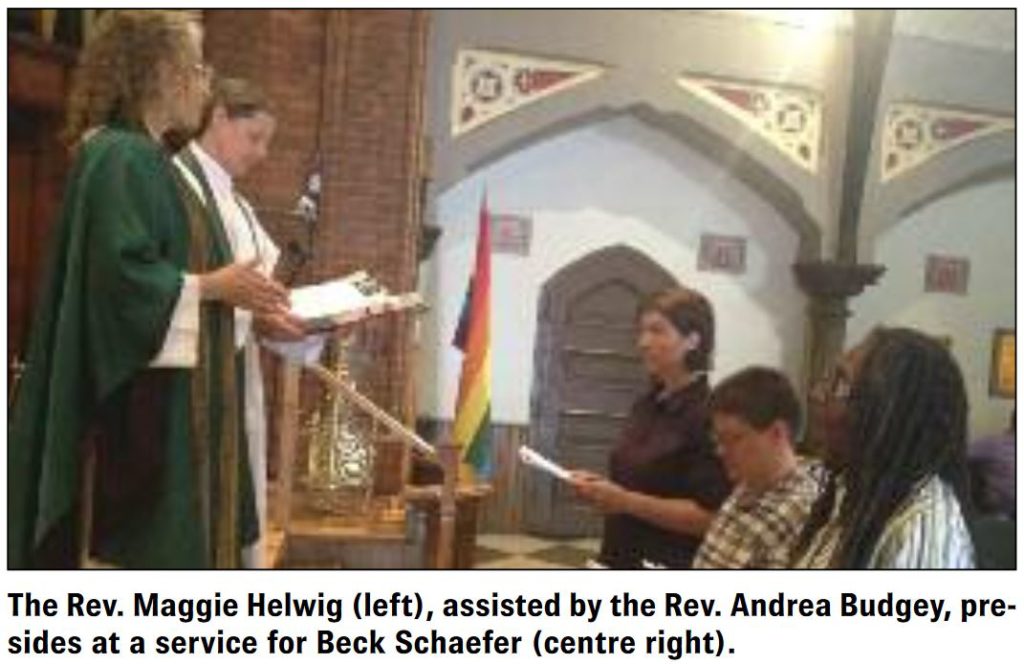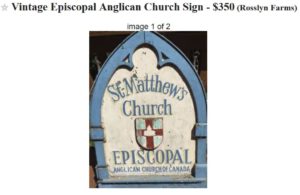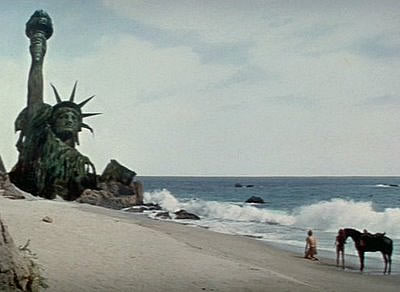Gerald Robinson is an atheist who teaches theology at Toronto’s Trinity College. It will surprise no one to learn that he is an Anglican who attends an Anglican Church of Canada parish where, no doubt, he feels quite at home amongst like-minded clergy.
He has written a book called Theology for Atheists; we can only assume he is angling to become the next ACoC Primate.
From here:
Award-winning Toronto architect Gerald Robinson is an adjunct professor of theology, in the divinity faculty at the University of Toronto’s Trinity College.
He’s a member of the Anglican congregation that worships in Trinity College Chapel and regularly attends services in the chapel. He calls it his parish church, his “go-to” place to worship. So what is he doing socializing with atheists in Scallywags, a Toronto pub?
Robinson is also an atheist who describes himself as an Anglican/Atheist/Christian—a description that must raise many eyebrows. Some will dismiss it as contradictory, incomprehensible.
Robinson says Jesus never claimed to be God, that nowhere in the gospels does he make that claim. Free Jesus from the doctrinal cluttering, and he is still the “greatest teacher the world has ever known,” whose message of peace, love and tolerance is sorely needed by a troubled world.
[….]
In his 168-page book, Robinson addresses such subjects as heavenly warfare, faith or reason, and miracles. He raises such questions as: Can atheists have a theology? Do atheists have souls? Can an atheist be a Christian if he or she denies the divinity of Jesus?
He answers with an emphatic “yes.”
To his credit, he has one thing right:
As an Anglican, he suggests that the Anglican/Episcopal Church makes the lowest demands for conformity of belief and could lead the way.
The way where, one wonders?



 THE church has always gathered as a community to mark the most important life passages of its members, so when Beck Schaefer, a member of St. Stephen-in-the-Fields, Toronto, legally transitioned from female to male, changing his name and identity documents to reflect a truer sense of his identity, the parish witnessed and blessed the moment.
THE church has always gathered as a community to mark the most important life passages of its members, so when Beck Schaefer, a member of St. Stephen-in-the-Fields, Toronto, legally transitioned from female to male, changing his name and identity documents to reflect a truer sense of his identity, the parish witnessed and blessed the moment.
